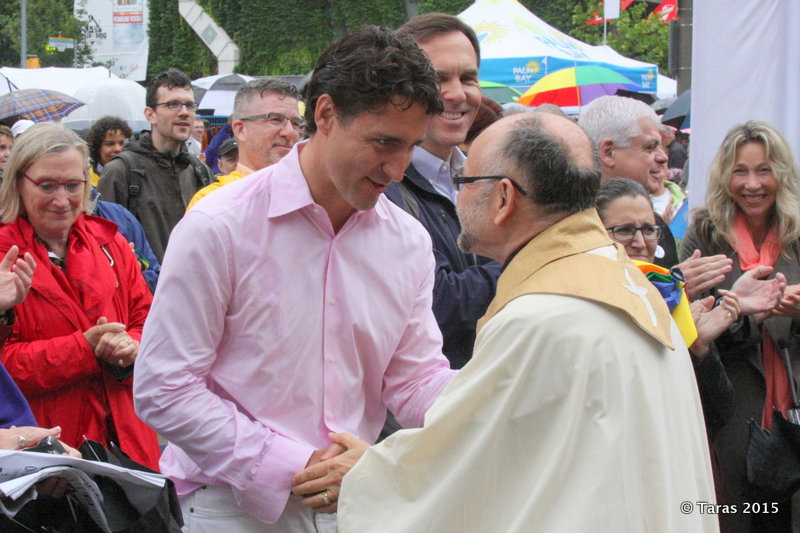I always have mixed feelings about PRIDE month. On the one hand, it’s necessary. On the other, I wish it wasn’t. On one hand, it provides a clear visual of how far we’ve come. (Did you see pictures of Canadian Prime Minister Trudeau with Rev. Dr. Brent Hawkes, Pastor of MCC Toronto, at Toronto PRIDE?) On the other, the backlash against LGBTQ couples in Texas and throughout the US seems relentless and stands in stark relief against our gains.
What takes me beyond mixed feelings and into the realm of “troubled” is the ever more frequent reports of PRIDE event disruptions. I don’t mean the ones where the Baptists are shouting scripture and handing out judgment. I mean the ones where segments of our own LGBTQ community disrupt the sanctioned events. Here is a link to an article that cites several recent examples. http://www.nbcnews.com/feature/nbc-out/pride-events-protests-claim-prejudice-exclusion-n775971
I am not angered by the protesters. In some respects, I agree with them and understand their grievances. The sad truth remains that in many ways our LGBTQ community mirrors the same prejudices and exclusionary behaviors of a general population that seems to still fear diversity more than we embrace it.
What troubles me is how some of the groups choose to get their message out. I wonder, for example, how many efforts were made to have discussions with PRIDE organizers before the events were disrupted. Was there a real effort to work for equitable and respectful solutions, or was there a conscious decision to cause disruption? I wonder if organizers of the sanctioned events regularly asked themselves “Who are we leaving out? Who’s not at the table? Is our impact going to match our intentions in holding this event?” and then invited others in.
As much as we talk about the need to affirm and celebrate diversity in the world, we often forget that we also must seek to affirm and celebrate diversity within our own GLBTQ community. We get wrongly focused until we can only see the ways in which we are different, and those differences often make us uncomfortable with and sometimes even unkind to one another.
We also tend to draw too many lines in the sand too quickly. My heart broke when I heard that Officer Jeronimo Yanez was found not guilty on all counts in the fatal shooting of Philando Castile. Yet I don’t believe that demanding that police officers not be allowed to march in the Twin Cities PRIDE parade is the right response. Together we are powerful beyond measure. Divided, we fall.
If we are going to be unifiers instead of dividers, if we are going to rise up, we are going to need a revolution as real as the one that began at Stonewall almost 50 years ago. We are going to need a revolution like the one Carter Heyward invites us to in Our Passion for Justice:
“To say I love you is to say that you are not mine, but rather your own. To love you is to advocate your rights, your space, your self, and to struggle with you, rather than against you, in our learning to claim our power in the world….
To love you is to be pushed by a power/God both terrifying and comforting, to touch and be touched by you…To love you is to sing with you, cry with you, pray with you, and act with you to re-create the world.
To say ‘I love you’ means–let the revolution begin!'”
Always in Hope,







